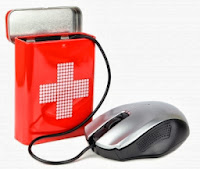PC system utilities are programs that encompass several applications that help clean up and fix numerous computer issues. While most PC utility software programs differ greatly in the services that they offer, there are several basic functions common to the majority of these programs.
On the chance that the removal does damage your computer, there is usually the option to restore the registry to a backup file that was made before the cleaning process to return your computer to normal.
One of the most important times to get PC utility software is when you are dealing with a slow and problematic computer. A good utility software can remedy several problems that may be causing performance issues. Though a good utility software is a good start, it's also a good idea to get a quality antivirus software to ensure that no viruses are causing the issue. Antivirus software will also provide constant virus protection to keep your computer safe from future infections.
PC utilities software is also beneficial for anyone who wants to regularly maintain their computer. Regular computer maintenance is important to keep your computer running well for as long as possible and utility software is a great asset to have for maintenance.
If the software doesn't run regular scans, it's a good idea to run a scan at least once every week. If you run into any viruses or moderate to severe errors, it's also a good idea to run the software directly afterward to resolve additional errors and clean up junk which may have been created during the error.
Registry Fix:
Your registry is constantly changing with updates, new registry entries and deletion of old entries. Because of this, there are usually numerous entries in your registry that are very old, useless or corrupted, and these entries can create numerous errors. Your registry is a vital part of your computer, and it can easily be harmful to your computer to delete registry files that are necessary. Instead of trying to clean the registry manually, PC utilities software can scan and detect which files need to be removed and which files need to stay without harming your computer.On the chance that the removal does damage your computer, there is usually the option to restore the registry to a backup file that was made before the cleaning process to return your computer to normal.
Junk File Cleaning:
Temporary files, cookies, recycle bin files and much more are all junk files that needlessly take up space in your computer. Not only does this rob you of hard drive space, but it may also significantly slow down your computer. A quick scan and sweep of the junk files can free up gigabytes of space and speed up your computer.System Optimization:
You may not be using the best settings or options for your computing needs. System optimization tools can improve your Internet browsing, save laptop battery life, increase speed and more. You can also set the options to optimize performance for work related activities, gaming, typical home usage, server use and more.Defragmentation:
As you add, change and delete files on your computer, these files fragment and spread out over your system. The more changes, additions and deletions are made, the more fragments are created. When too many fragments are created and when too many files are fragmented, it can slow down computer speed since it needs to find all of the fragments of a file in order to use it. Defragmentation software finds these fragments and puts them back together to create a more complete file allowing the computer to easily find and access the file.Error Detection:
Though you may not always notice, your system may be dealing with errors that can be affecting performance or damaging files, programs or the entire system. Error detection finds and resolves errors found in your system. If it can't resolve the issue, it can usually provide the user with information on the error as a reference to fix it.Why Do I Need PC Utility Software?
PC utilities software is also beneficial for anyone who wants to regularly maintain their computer. Regular computer maintenance is important to keep your computer running well for as long as possible and utility software is a great asset to have for maintenance.
If the software doesn't run regular scans, it's a good idea to run a scan at least once every week. If you run into any viruses or moderate to severe errors, it's also a good idea to run the software directly afterward to resolve additional errors and clean up junk which may have been created during the error.
Image Credit: Grant Cochrane.

0 comments:
Post a Comment